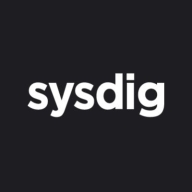

Microsoft Defender for Cloud and Sysdig Falco compete in the cybersecurity sector, with each offering distinct strengths. Microsoft Defender for Cloud appears advantageous with broader service integration, while Sysdig Falco specializes in container security.
Features: Microsoft Defender for Cloud includes advanced threat protection, vulnerability scanning, and seamless integration with Microsoft services. Sysdig Falco provides kernel-level security detection, real-time threat monitoring, and an emphasis on container environments.
Ease of Deployment and Customer Service: Microsoft Defender for Cloud integrates well within the Microsoft suite, streamlining deployment for current users, bolstered by a global support network. Sysdig Falco offers straightforward installation for DevOps, with support tailored to container-based setups.
Pricing and ROI: Microsoft Defender for Cloud is typically offered within Microsoft's service bundle, providing potential cost-effectiveness for existing enterprise users. Sysdig Falco, with its open-source core, can lower initial expenses and prove valuable in container-focused settings.
| Product | Market Share (%) |
|---|---|
| Microsoft Defender for Cloud | 6.2% |
| Sysdig Falco | 1.8% |
| Other | 92.0% |


| Company Size | Count |
|---|---|
| Small Business | 27 |
| Midsize Enterprise | 10 |
| Large Enterprise | 49 |
Microsoft Defender for Cloud is a comprehensive security solution that provides advanced threat protection for cloud workloads. It offers real-time visibility into the security posture of cloud environments, enabling organizations to quickly identify and respond to potential threats. With its advanced machine learning capabilities, Microsoft Defender for Cloud can detect and block sophisticated attacks, including zero-day exploits and fileless malware.
The solution also provides automated remediation capabilities, allowing security teams to quickly and easily respond to security incidents. With Microsoft Defender for Cloud, organizations can ensure the security and compliance of their cloud workloads, while reducing the burden on their security teams.
Sysdig Falco is a powerful open-source behavioral activity monitoring tool designed for containerized environments. Its primary use case is to enhance security and threat detection in cloud-native infrastructures.
The most valuable functionality of Sysdig Falco lies in its ability to detect and alert on abnormal behavior within containers and Kubernetes environments. It leverages a set of rules to monitor system calls, network activity, file access, and other low-level events, enabling it to identify suspicious activities and potential security breaches.We monitor all Container Security reviews to prevent fraudulent reviews and keep review quality high. We do not post reviews by company employees or direct competitors. We validate each review for authenticity via cross-reference with LinkedIn, and personal follow-up with the reviewer when necessary.